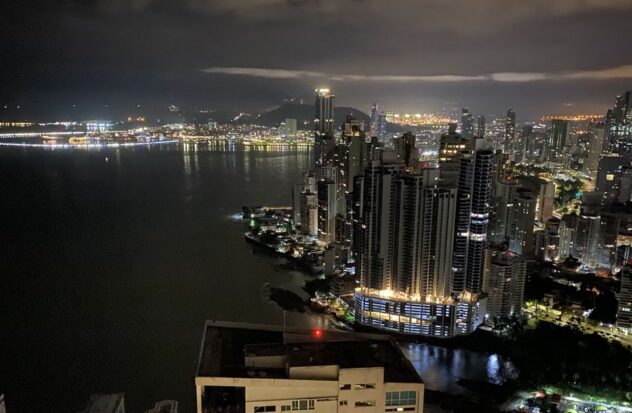In 2017, six months after formalizing diplomatic relations with China, the then Panamanian president, Juan Carlos Varela, stated in Beijing that his country wanted to be “China’s commercial arm for Latin America.” The declaration of intentions served to justify Panama’s alliance with the authoritarian People’s Republic to the detriment of democratic Taiwan.
Six years later, the bilateral journey full of chiaroscuro evidences the gap between good intentions and the actions carried out. The current relationship shows a position of dominance for China, while Panama’s benefit is tangential and has not contributed to the development of the country.
Beijing has achieved several of its strategic objectives. He diplomatically isolated Taiwan and defended his “one China” policy, while strengthening his position in the Colon Free Zone (FTZ), converted into an epicenter for re-exports and regional headquarters for 18 Chinese companies. Panamanian copper was also secured and progress was made in the construction of infrastructure works, such as the fourth bridge over the canal.
On the Panamanian side, although it has received a stock of Chinese investment of almost 1 billion dollars, it has not been concentrated in sectors that generate productive chains. And in trade, between 2019 and 2023, Panamanian exports focused exclusively on copper, which represented more than 95% of total shipments.
Providing natural resources is not necessarily a bad business, but it does not generate long-term wealth and condemns economic ‘primarization’. At the same time, Panamanian imports are of Chinese products that, such as mobile phones, vehicles and components, incorporate significant added value.
The definitive suspension of copper exploitation in the country’s main deposit will considerably alter the trade balance, since in 2023 the mine supplied China worth $1.55 billion. And beyond this ‘monoculture’, sales of other products barely exceeded 61 million.
The Panamanian governments erred by not proposing a strategy that encouraged the diversification of agricultural and livestock products. Let’s not forget: one of the reasons for China’s presence in Latin America is to guarantee its food security. Such a meager volume of exports is also explained by the non-tariff barriers that Beijing is so fond of. Only six phytosanitary licenses for food have been granted since 2018.
Although there is no official explanation for these delays, it is common knowledge that it could be a form of pressure from China to obtain other concessions. Therefore, with the numbers in hand, Panama’s intention to become the “Chinese commercial arm in Latin America” has not only not worked, but has not even served to make Beijing open its market to Panamanian products.
After the establishment of diplomatic relations, the Varela Executive signed 47 agreements for the promotion and protection of investments, laying the foundations for a political link favorable to Beijing. As a result of this closeness, China undertook several infrastructure projects and there were five rounds of negotiations for a Free Trade Agreement (FTA) despite the fact that, in neighboring Costa Rica, the FTA has not responded to Costa Rican expectations after 12 years of validity.
This alliance generated discomfort in the United States. Not only did China not adhere to the “Protocol to the Treaty Relating to the Permanent Neutrality and Operation of the Panama Canal”, signed by more than 40 countries, but Panama is a strategic enclave for the US as well as a geopolitical ally. Since the “Varela model” was uncomfortable for Washington, the outgoing president, Laurentino Cortizo, sought balance.
It did not put obstacles to the participation of Chinese companies in the ZLC, which guarantees income from the use of the interoceanic canal; nor did it limit copper exports, which it even tried to encourage with a law to renew the concession. However, unlike his predecessor, he paralyzed the NAFTA talks, stopped the construction of the Panama-David train and did not object to the Panama Maritime Authority terminating the contract for a Chinese container terminal in Colón.
Cortizo opted for a scheme of triangular relations between Panama and China and the United States, trying to take advantage of the geographical location and logistical value of his country to obtain greater benefits. However, the cooldown with China was inevitable, including the delay in approving new phytosanitary licenses.
The eternal debate about China: progress or caution? After the elections on May 5, the next president will have to address this dilemma in a context of geopolitical competition between the two powers. The ‘Varela model’ did not guarantee the development of the country’s productive capacities and strained the relationship with the United States. And, despite the political honeymoon, the benefits for Panama were minimal.
The new Executive must commit to a policy that maximizes the benefits with China and the United States, taking advantage of the advantages offered by Panama’s strategic location. At the same time, it must create a framework of trust with its partners, so that Chinese activity is not perceived as a threat. Panama was the first regional country to join the Belt and Road project, but this does not mean that it must sacrifice its democratic commitments.
In addition, the next Executive must prioritize a long-term strategy with China, the diversification of the export basket and the creation of conditions for Chinese investment in sectors other than financial and logistics. The candidates agree on wanting cordial treatment with Beijing, but it is surprising that none of them have outlined their strategy. Escaping the conjunctural dynamics of moving closer or further away –as the case may be– from China or the US, and establishing a stable position that brings long-term benefits to Panama, should be a matter of State.
Carlos Piña is a political scientist and internationalist specialized in the relationship between China and Latin America and collaborator of the “Analisis Sinico” project in www.cadal.org

